How Safe is the Dominican Republic? Avoiding Crime and Scams
How safe is the Dominican Republic for travelers? Gisselle Frias, a born and raised local from this Caribbean nation, shares how to keep traveling safely with tips on crime and travel scams.
Shares
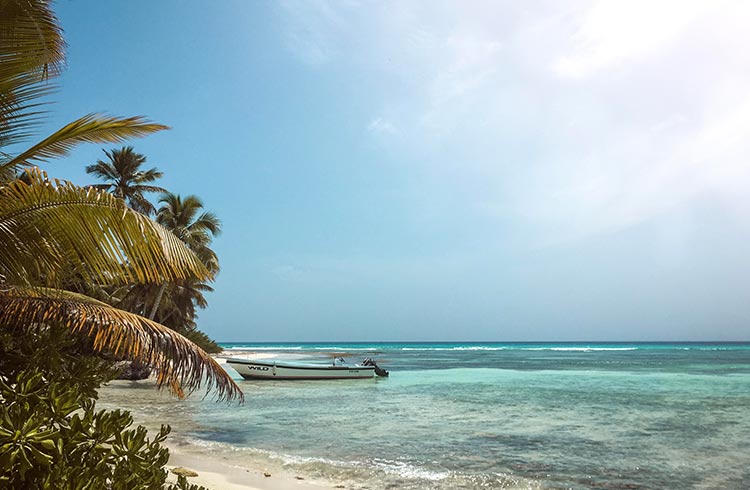 Photo © Gisselle Frias
Photo © Gisselle Frias
The Dominican Republic, or The DR for short, is popular for its crystal-clear blue water, and powdery white beaches.
I was born and raised in the Dominican Republic and, after a few years traveling solo around the world, I came home inspired to explore lesser-known places on my home island.
With more than six million visitors each year, The Dominican Republic ranks top five overall for tourism in the Americas.
This is one of the friendliest countries in the world, and exploring this Caribbean island with common-sense safety precautions in mind should be more than enough to keep you safe.
Here are my top six travel safety tips when it comes to exploring the Dominican Republic safely.
- How safe is the Dominican Republic for travelers?
- Safety for solo women travelers
- Places to avoid in the Dominican Republic
- The best places to go in the Dominican Republic
- Drug laws
- Safe for LGTBQ+ travelers
- Transport crime
- Credit card fraud and other money scams
- Listen to The World Nomads Podcast: The Caribbean
1. Is it safe to travel to the Dominican Republic?
In 2019, the country was under media scrutiny over the suspicious deaths of 11 tourists. News articles claimed the deaths were due to tainted/spiked alcohol, but following investigations by the FBI, the deaths were deemed to have been by natural causes. But the damage was already done; there were news headlines warning people not to visit the Dominican Republic, causing a high number of hotel booking cancellations during the summer.
The government reacted to the media attention by setting up the Special Security Committee dedicated to ensuring the safety of visitors. Under new guidelines, hotels are now inspected four times a year, including detailed food and beverage control.
Each hotel guest room must now have an emergency information card with emergency numbers, such as:
- 911 (for police, fire or ambulance)
- 112, which directs to 911 on mobile phones
- 809-200-3500 Tourism Police (CESTUR)
Here are a few other tips to stay safe in the Dominican Republic based on my own and other locals’ experiences:
- Avoid unlicensed taxis. Instead, use a licensed taxi that has a sign on its roof with the name of the taxi company.
- Do not ride a motorbike without a helmet.
- Do not wear flashy jewelry while walking on the streets. It can attract attention to thieves who are usually on motorbikes.
- Do not use your phone on the street. If you need to make a call or check a map, enter a café or restaurant before taking your phone out
- Never leave any valuable belongings in plain sight. Lock your suitcases when you leave your hostel or hotel.
- Avoid giving money to street kids – it encourages begging.
- This Caribbean island has had cases of dengue fever, zika and chikungunya virus, especially in the rain/hurricane season (May, September, October and November). Use insect repellent, wear long sleeves and trousers and sleep under a mosquito net.
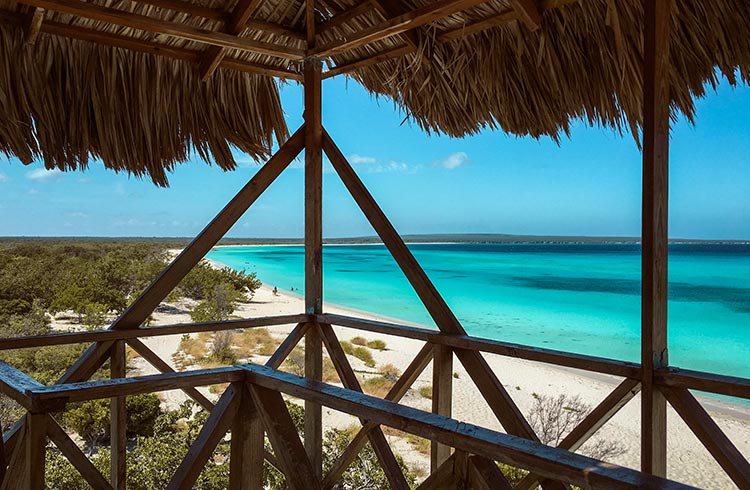
2. Is it safe for women to travel alone in the Dominican Republic?
Overall it is safe for women to travel solo in the Dominican Republic, but like anywhere in the world, common sense and sensible judgment should always be on your agenda.
Avoid walking alone in isolated areas or back streets alone late at night. In the resort town of Punta Cana, sexual assaults are common at night.
Sexual harassment towards travelers is not common, although you might receive unwanted attention from Dominican men who might whistle or shout “hey mami” or “oye gringa”. This is not meant to cause harm, so just ignore them and keep walking.
At public beaches, you will see many sankis – young men trying to seduce travelers with the intention of extorting money or starting relationships in the hope that travelers will invite them to join them in their home country. If approached, say no.
Whether at a resort or strolling the streets, you‘ll only make yourself more of a target for theft by donning flashy clothing and showing off valuables such as jewelry or cameras on the island.
A traveler to Santo Domingo reported that the area of Independencia and el Malecon west of Parque Independencia in the city center is dodgy. The area around the casinos is also more likely to include hustlers and prostitution, which puts tourists at risk for pickpocketing or robbery.
Like in some European countries, more and more thieves are striking while cruising by with the engine off on a moped, often snatching a purse and possibly knocking over the victim. Tourists also increasingly report theft from cars.
3. Areas to avoid in the Dominican Republic
The Dominican Republic has a high crime rate, but crime is most common in communities and areas travelers rarely visit.
Some high-crime areas in the capital city of Santo Domingo include Arroyo Hondo, Naco, Gazcue, Cristo Rey and Villa Agricola. Violent crimes such as theft, muggings and even murder have occurred. If confronted, always hand over your belongings.
Here are a few tips to keep yourself safe in urban areas of the Dominican Republic:
- Avoid walking by yourself late at night on the streets. Always walk in groups of at least two.
- Avoid visiting La Duarte, a street in Santo Domingo. It is chaotic and crowded, making the chance of getting mugged higher here than elsewhere.
- Do not leave your valuables or bags unattended at the beach. Always have someone watching them or have them close to you.
- Never leave your drink unattended at a bar. If you do, ask for a new one.
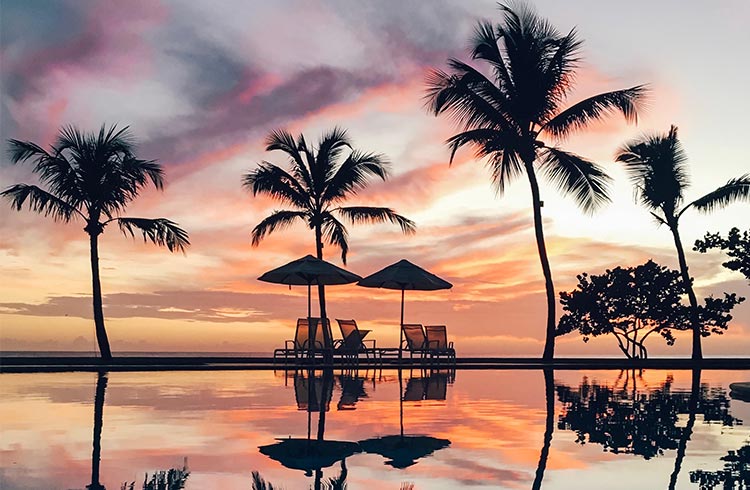
4. Safe places to visit in the Dominican Republic
These are some of my favorite (and some of the safest) places to visit in the Dominican Republic.
For adventure
- The Damayagua Cascades, where there are 27 waterfalls
- Kitesurfing in Terrenas, Samaná
- Humpback whale watching during whale watching season, from January to February at Samaná Bay
- Windsurfing in Cabarete, Puerto Plata
- Canoeing through the caves of Los Haitises National Park
- Diving the Hoyo Azul cenote in Cap Cana.
Safe beaches to explore
- Bahia de las Aguilas, part of Jaragua National Park
- Playa Las Ballenas in Terrenas, Samaná
- Playa Rincon in Samaná
- Cayo Levantado, on a small island in the middle of Samaná Bay
- Playa Blanca in Punta Cana
- Playa Esmeralda, located in Miches
- Saona Island.
Cultural experiences
- Visit the Colonial City of Santo Domingo – which is also a UNESCO World Heritage Site
- Faro Colon in Santo Domingo
- Fortress San Felipe and the Cable Car in Puerto Plata
- Taino Caves in Sabana de la Mar
- Altos de Chavón in La Romana.
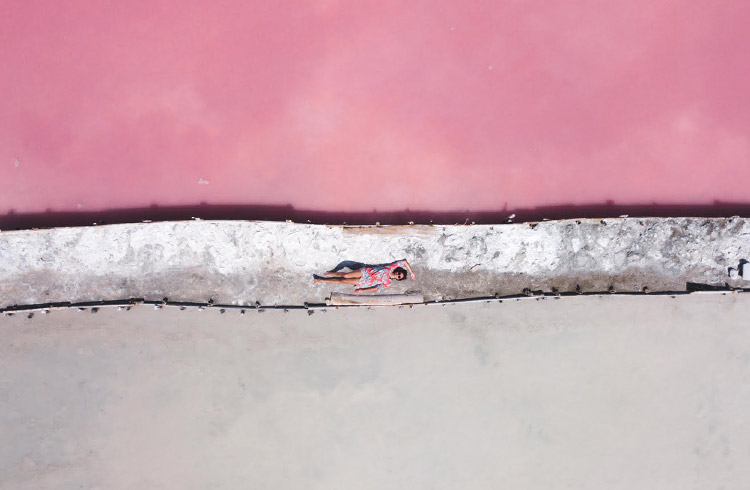
5. Drugs in the Dominican Republic
The Dominican Republican is very strict on drug offenses, and penalties can range from large fines to long jail sentences. It doesn‘t matter how much or what you‘re packing -- the authorities impose severe penalties regardless. Prisons are tough and poorly-maintained. The country is either getting stricter or those carrying drugs are getting more careless, as the rate of arrests of foreign travelers for drug offenses has risen dramatically.
Officials from the Dominican Drug Enforcement Agency often have their sniffer dogs at the airport to catch foreigners carrying drugs right as they step off the plane. Smugglers target luggage tags, removing them to place them on their own bags, which contain drugs.
Even if you‘re clean as a whistle, some shady strangers may try to plant drugs on you. In what‘s called the “dishonest cop scam,” a chipper local will come up and shake your hand, then place a bag of cocaine or other illicit drug in your palm. A police officer then steps in and “arrests” you, but says you can get off by paying a fine.
Even if you don‘t participate in it, drug activity is something you might see being conducted by dealers or gang members. Gangs do exist in the D.R., most notably in the Capotillo, Guaricano and La Cienega areas of Santo Domingo. Members can sometimes be seen hanging out at the mall in that city.
Any violence they commit will usually involve rival members, but occasionally, their initiation process includes harming a random stranger. Gangs, and other local residents, may carry weapons, and sometimes they are visible. There are drug cartels in the Dominican Republic, but they are mostly a stopping off point for getting drugs to Europe or the States.
6. Is the Dominican Republic safe for LGTBQ+ travelers?
Around 95% of Dominicans are Christian and it is a conservative country when it comes to sexual orientation. Even though the topic of the LGBTQ+ community is a sensitive one, everybody is welcome here. LGBTQ+ travelers may face discrimination or hear derogatory comments but are unlikely to encounter violence. Public displays of affection should be limited.
7. Transport crime
There's been an increase of armed robbery of tourists leaving the Las Americas international airport. Criminals impersonating police force taxis or private vehicles to stop and rob travelers at gunpoint. The situation is particularly bad at night and you should try to arrange to arrive in the Dominican Republic in daylight hours.
Always keep a close eye on your baggage and avoid displaying valuables like cameras and laptops which can entice potential thieves for a quick snatch and grab.
It's also common for thieves on motorcycles to swoop in at a red light and reach into vehicles to lift whatever they can. Either suffer through the stifling heat with the windows rolled up, or put a stronghold on your purse or bag.
Also, avoid unmarked taxis, as the drivers may try to scam riders.
8. Credit card fraud and other money scams
Other types of theft include credit card and ATM fraud. In fact, the U.S. Department of State goes so far as to warn travelers against using credit cards at all; some have reported fraudulent charges appearing on their statements months after their trip. Always keep your card in sight when using it.
Avoid using ATMs at night and only use ATMs inside banks and shopping malls. The same applies to exchanging money, Exchange at your hotel or at a reputable money changer in a shopping mall or bank.
Another danger is “Progressive Keno,” in which players can lose large amounts of money quickly.
The latter is a big con, so move onto another game if frequenting the casinos.
Some tourists say the rules are confusing, which leads to some of the money-wasting. Other names this game goes by include “Super Keno,” “Caribbean Keno” or “Progressive Roulette.” A traveler to Provincia de Puerto also reported that bars outside the resort areas will run up your tab past what it should be or overcharge for drinks.
There are also beggars in the street, including children. A Santo Domingo resident advised tourists against giving money to anyone, even if they truly look needy or appear to be crippled, as locals simply ignore their pleas.
Additional reporting by Phil Sylvester.
Related articles
Simple and flexible travel insurance
You can buy at home or while traveling, and claim online from anywhere in the world. With 150+ adventure activities covered and 24/7 emergency assistance.
Get a quote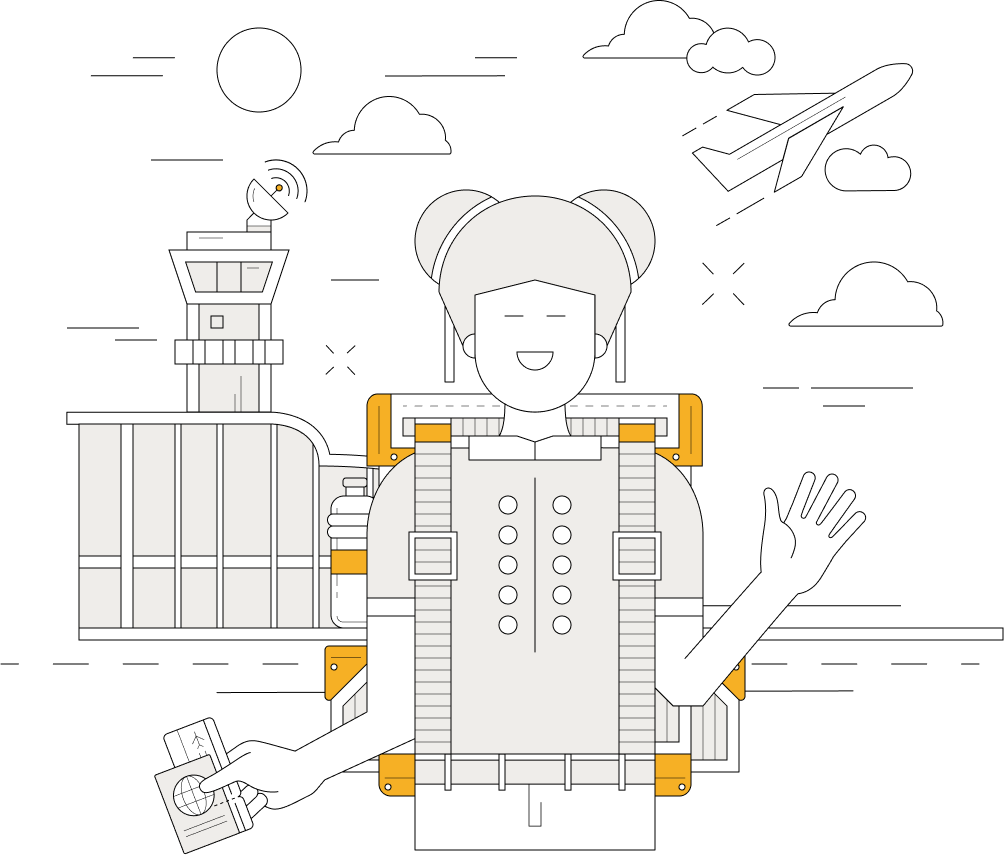
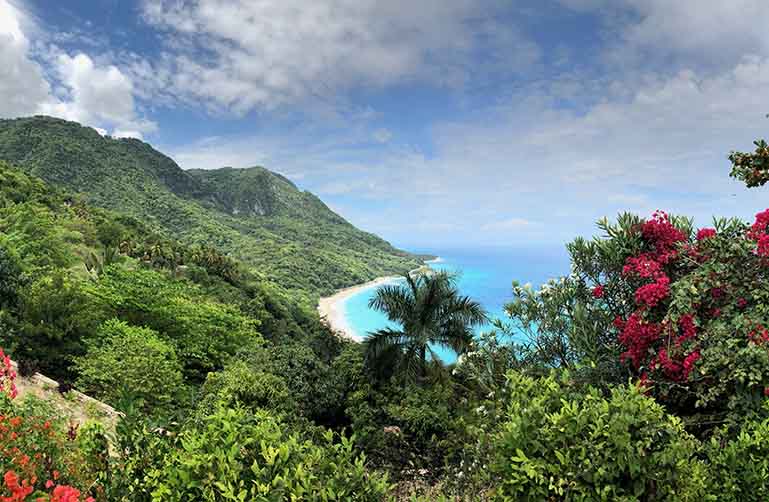
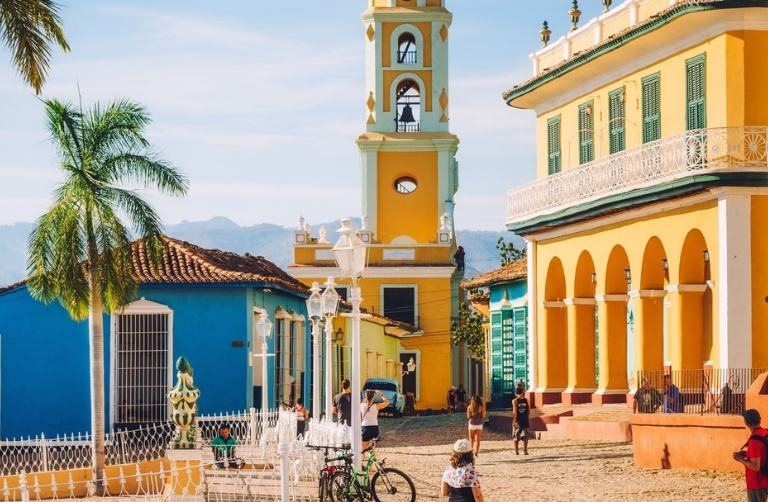
9 Comments
Hi, I am currently in the Domincan Republic and am embarrassed to say that I fell victim to a vacation club scam, which cost me $135,000, for which I ended up receiving very few benefits and have since had the membership suspended/cancelled by the resort for no reason!! I was wondering if you are aware of this type of scam, and whether you might like to run a story to help others avoid it. Also can recommend any possible recourse? Thank you
Hi Malcolm, could you please elaborate on the scheme you referenced?
Thanks,
Future traveler
I don’t know why those people try to destroy domi can tourism, this country is full of fun and happiness don’t miss your best trip enjoy Punta Cana enjoy Santo Domingo
Thanks God you said you were born and raised in Dominican Republic because the way you talk about it is really disturbing
I have no doubt that these things happen in an urban city and under the current climate of many getting rich and richer and too many remaining poor. However, I am originally from NYC (lower Manhattan) and then I lived in Los Angeles for over 20 years, and even though I have lived in various other countries this is rather typical behavior in this type of environment. NYC isn't very safe, when you consider the amount of robberies and murders there, but as a New Yorker, this never occurs to me, because I know how to live in these situations. In the USA, we home invasions, car jacking, ATM and gambling scams, and more. You must be wise, smart and aware and have a certain energy about you. Tourists can be arrogant, believing themselves to be untouchable when on vacation; this is mostly untrue, especially in a foreign country. I would give the same caution when visiting Paris, Downtown LA, Madrid or Rome, the middle East, and the lists goes on... Big cities are often affected more by crime, so you must use common sense and caution.
I traveled to the Dominican Republic every year but of course I had to stop for about 2 years because of Covid, I already follow all of the safety tips on this page so nothing ever happened to me. They are things I do anywhere I am, even when I'm in my home state (I live in NJ), it's common sense. In my own personal opinion DR isn't any more dangerous than any other country.
Naco.... dangerous hahaha its high end of the high end.. 😅 crazy this information
Naco and Gazcue aren’t dangerous at all, those are two of the best places to live in the capital, im from DR, i live in Nj and i can say nj,nyc,pa are more dangerous than Dominican Republic.
Tips to follow: Rent a car to get from point A to point B and avoid walking what’s in between if u thing like him/her, lol.
Agree with Vanessa Pantaleon. On point. If you follow the rules like you should in any country you will be safe. The police in the DR are vicious with criminals.. a big deterrent. Someone is trying to ruin tourism for the DR.